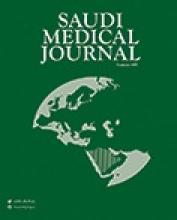Abstract
OBJECTIVE: To examine the causative relationship between aberrant histone acetylation changes and cocaine-induced reward.
METHODS: Male Sprague-Dawley rats (n=160) were tested by conditioned place preference (CPP) procedure, to evaluate the effects of inhibitors of histone deacetylase (HDAC) and histone acetyltransferase (HAT) on the conditioned effects of cocaine. Conditioning sessions were conducted twice daily for 2-4 days. For each conditioning session, rats were injected with either HDAC (or HAT) inhibitors or saline in home cages, followed by cocaine (intraperitoneally [ip]) or saline (ip) 30 minutes later, and then immediately confined for 50 minutes in the cue-specific chamber. On the day following the last conditioning session, the rats were tested for place preference for 15 minutes. The present study was carried out at the Department of Pharmacology of Jiaxing University, Jiaxing, Zhejiang, and Pharmacology Research Center of Fudan University, Shanghai, China between October 2007 and January 2009.
RESULTS: Our results showed that pretreatment with HDAC inhibitor (sodium butyrate), potentiated cocaine-induced CPP, but did not itself lead to conditioned preferences, or aversions. On the contrary, rats pretreated with curcumin (HAT inhibitor) markedly inhibited cocaine-induced CPP, but did not itself lead to conditioned preferences or aversions.
CONCLUSION: Histone modifications may be an important mechanism that underlies conditioned effects of cocaine. Moreover, HAT may be a potential therapeutic target for cocaine addiction.
- Copyright: © Saudi Medical Journal
This is an open-access article distributed under the terms of the Creative Commons Attribution-Noncommercial License (CC BY-NC), which permits unrestricted use, distribution, and reproduction in any medium, provided the original work is properly cited.






